
Stephen Richard Hackett is an English guitarist, songwriter and producer who gained prominence as the lead guitarist of the progressive rock band Genesis from 1971 to 1977. Hackett contributed to six Genesis studio albums, three live albums, seven singles and one EP before he left to pursue a solo career. He was inducted into the Rock and Roll Hall of Fame as a member of Genesis in 2010.
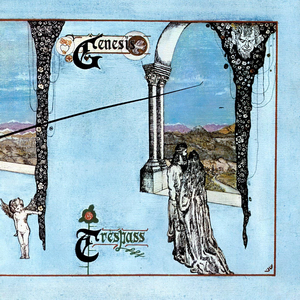
Trespass is the second studio album by the English rock band Genesis. It was released on 23 October 1970 on Charisma Records, and is their last album with original guitarist Anthony Phillips and their only album with drummer John Mayhew.
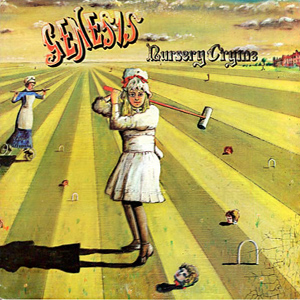
Nursery Cryme is the third studio album by the English rock band Genesis, released on 12 November 1971 on Charisma Records. It was their first to feature drummer/vocalist Phil Collins and guitarist Steve Hackett. The album received a mixed response from critics and was not initially a commercial success; it did not enter the UK chart until 1974, when it reached its peak at No. 39. However, the album was successful in Continental Europe, particularly Italy.
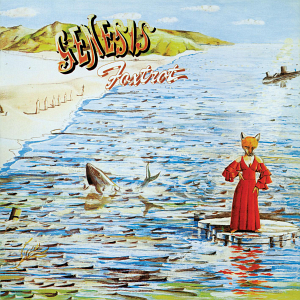
Foxtrot is the fourth studio album by the English progressive rock band Genesis, released on 15 September 1972 on Charisma Records. It features their longest recorded song, the 23-minute track "Supper's Ready".

Genesis Live is the first live album from the English rock band Genesis, released on 20 July 1973 on Charisma Records. Initially recorded for radio broadcast on the American rock program King Biscuit Flower Hour, the album is formed from the recordings of shows at Free Trade Hall, Manchester and De Montfort Hall, Leicester in February 1973 during the band's tour supporting their fourth studio album Foxtrot (1972).

Selling England by the Pound is the fifth studio album by the English progressive rock band Genesis, released on 5 October 1973 on Charisma Records. It reached No. 3 in the United Kingdom and No. 70 in the United States. A single from the album, "I Know What I Like ", was released in February 1974 and became the band's first top 30 hit in the UK.

Seconds Out is the second live album by English progressive rock band Genesis. It was released as a double album on 14 October 1977 on Charisma Records, and was their first with touring drummer Chester Thompson and their last with guitarist Steve Hackett. The majority was recorded in June 1977 at the Palais des Sports in Paris during the Wind & Wuthering Tour. One track, "The Cinema Show", was recorded in 1976 at the Apollo in Glasgow during their A Trick of the Tail Tour.
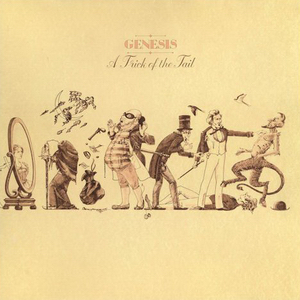
A Trick of the Tail is the seventh studio album by English progressive rock band Genesis. It was released on 13 February 1976 on Charisma Records and was the first album to feature drummer Phil Collins as lead vocalist following the departure of Peter Gabriel. It was a critical and commercial success in the UK and U.S., reaching No. 3 and No. 31 respectively.

Wind & Wuthering is the eighth studio album by English progressive rock band Genesis. It was released on 17 December 1976 on Charisma Records and is their last studio album to feature guitarist Steve Hackett. Following the success of their 1976 tour to support their previous album A Trick of the Tail, the group relocated to Hilvarenbeek in the Netherlands to record a follow-up album, their first recorded outside the UK. Writing and recording caused internal friction, as Hackett felt some of his contributions were dropped in favour of material by keyboardist Tony Banks.

...And Then There Were Three... is the ninth studio album by the English rock band Genesis. It was released on 31 March 1978 by Charisma Records and is their first recorded as a trio of singer/drummer Phil Collins, keyboardist Tony Banks, and bassist/guitarist Mike Rutherford, following the departure of guitarist Steve Hackett. The album marked a shift in the band's sound, mixing elements of their progressive rock roots with more accessible material, and Collins contributing to more of the group's songwriting.
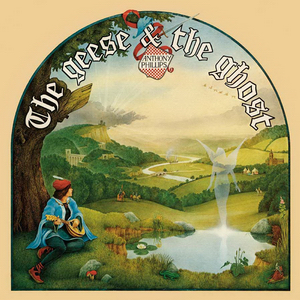
The Geese & the Ghost is the first studio album by English musician and songwriter Anthony Phillips, released in March 1977 on Hit & Run Music in the United Kingdom and Passport Records in the United States. It was originally intended to be an album by Phillips and his former Genesis bandmate Mike Rutherford, but Rutherford's difficulty in devoting time to the project ended the idea. The album reached number 191 on the Billboard 200.

Defector is the fourth studio album by English guitarist and songwriter Steve Hackett, released in June 1980 on Charisma Records. After touring in support of his previous album, Spectral Mornings (1979), Hackett took his band into Wessex Sound Studios to record a follow-up.
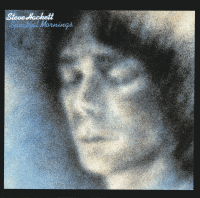
Spectral Mornings is the third studio album by English guitarist and songwriter Steve Hackett, released in May 1979 on Charisma Records. It is his first to feature members of his touring band, which many Hackett fans consider as the "classic line-up". The musicians are his brother John Hackett, Nick Magnus, Dik Cadbury, John Shearer, and Pete Hicks.
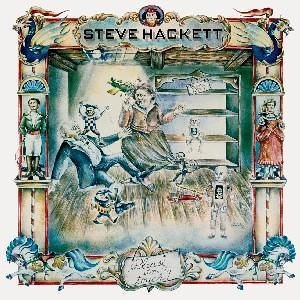
Please Don't Touch! is the second studio album by English guitarist and songwriter Steve Hackett. It was released in April 1978 on Charisma Records, and it is his first album released after leaving the progressive rock band Genesis in 1977. Hackett had released Voyage of the Acolyte (1975) during his time in Genesis. For his next solo release he recorded in the United States and hired various guest artists, including singers Randy Crawford, Richie Havens, and Steve Walsh, drummers Phil Ehart and Chester Thompson, bassist Tom Fowler, with Van der Graaf Generator violinist Graham Smith.
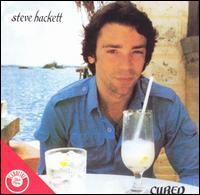
Cured is the fifth solo album from Genesis guitarist Steve Hackett.

Highly Strung is the sixth studio album by English guitarist and songwriter Steve Hackett. "Cell 151" was a minor hit from the album, and charted in the UK. Added to Hackett's band was drummer Ian Mosley, who would join Marillion in 1984. This was Hackett's final studio release for Charisma.
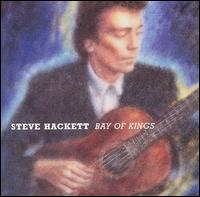
Bay of Kings is the seventh studio album from English guitarist Steve Hackett, released in October 1983 on Lamborghini Records. His first album consisting entirely of instrumental classical guitar music, Hackett's former record company Charisma Records refused to release it over concerns about its commercial viability. Hackett left the label and released Bay of Kings through independent record company Lamborghini Records, started by Patric Mimran who owned the said car company at that time. It was later reissued by Hackett's own label, Camino Records. The album cover originally used a nude painting by his wife at the time, Kim Poor, but at her insistence it was replaced for the Camino reissue by a new painting of Hackett.

In the Region of the Summer Stars is the debut album by progressive rock band the Enid. It is based on the tarot sequence and on the writings of Charles Williams. It was released in 1976 by EMI. A new version was released on the band's own label in 1984 following its deletion from the EMI catalogue. In 2010, to forestall an alleged bootleg version, EMI licensed the original version to the band's own label.

Two Sides of Peter Banks is the debut album by ex-Yes, Flash, and Syn guitarist Peter Banks. It features contributions from members of several progressive rock bands, including Genesis, King Crimson and Flash. Banks had previously been the guitarist of Yes, before being replaced by Steve Howe; after being fired from Yes in 1970 he formed Flash, which ran from 1971 till 1973.



















